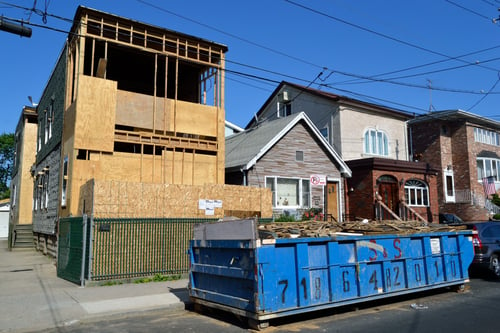
Do you get starry-eyed watching fix and flip shows?
If so, you're not alone. In 2019, house flippers bought and sold over 245,000 American homes.
It's true that fix and flip investments can be great opportunities. But like all financial investments, there are certain aspects you should watch out for and keep in mind before making a final decision.
The world of fix and flip real estate works a little differently than standard home buying. In this post, we'll help you identify the right kind of property for flipping homes.
Read on to learn more!
Fix and Flip Properties: 4 Important Considerations
So, you've found the perfect property—or have you? Before you start researching fix and flip lenders, here are four things to keep in mind.
- Quality
The average house flipping profit is around $58,000. But how much you'll make depends on the quality of the property you buy.
Renovation work is part of the fix and flip process, but you need to ensure the required work won't cut too deeply into your profit margin.
Is the house structurally sound? What are the quality and condition of the plumbing and electrical fixtures? What type of flooring exists, and how much of it will need to be replaced?
Read more: Do’s and Don’ts of New-Home Construction - Location
Even if you find a home in good condition, the location could make or break your ability to flip it.
For example, is the property located in a flood zone or a property that has an easement running in the back yard or that backs up to a gas station or cleaners? Does it sit at the intersection of two noisy streets? Or is it near something unsightly, like a large factory or a garbage dump? These seemingly minor details can have mayor repercussions when you try to re-sell the property. - Amenities
If the home you're considering is near good schools and public parks, that's a big plus for families. You also improve your chances of a successful flip if the local economy and job market are strong.
Does the property have any additional amenities you can highlight (or add)? These might include a pool, a built-in refrigerator, or walk-in closets.
You may also increase the property's value by installing certain types of appliances, but it depends on the home. E.g., you would not install a high-end refrigerator in a $200K production home nor would you install low-grade appliances in a Custom home. In short, we recommend installing appliances commensurate with production homes or commensurate with custom homes; whichever is applicable.
Read more: Hard Costs vs. Soft Costs – Understanding the Difference - Emotional Investment
A common pitfall of new house flippers is falling in love with the wrong property.
You, the investor, should be careful not to get too emotionally involved. If the numbers don’t work, don’t do it. Or, as my wife always says, "If, in doubt, don’t do it."
Even if there are many positive aspects of the home, remember that it is first and foremost a financial investment. If it needs too much work or in a less-than-ideal location, you need to look elsewhere.
Financing for Flipping Houses: Where to Get Fix and Flip Loans
If you do it right, fix and flip real estate can be a lucrative investment. Before you jump into a purchase, refer back to the list above to ensure you're making a wise decision.
What if you want to enter the world of house flipping, but don't have the cash on hand? Is it possible to get loans or private money for flipping houses?
Yes! Here at AMI Lenders, we're a premium provider for fix and flip loans.
Click here to find out more about our lending terms and loan process.
AMI Lenders is here to help you with financing solutions that fit your needs.
For over 30 years, AMI Lenders have been have been providing financing options to individuals in the Houston area. If we aren't able to assist you, we'll be happy to direct you to someone who can. Contact us for any questions or concerns. We are always here to help!





